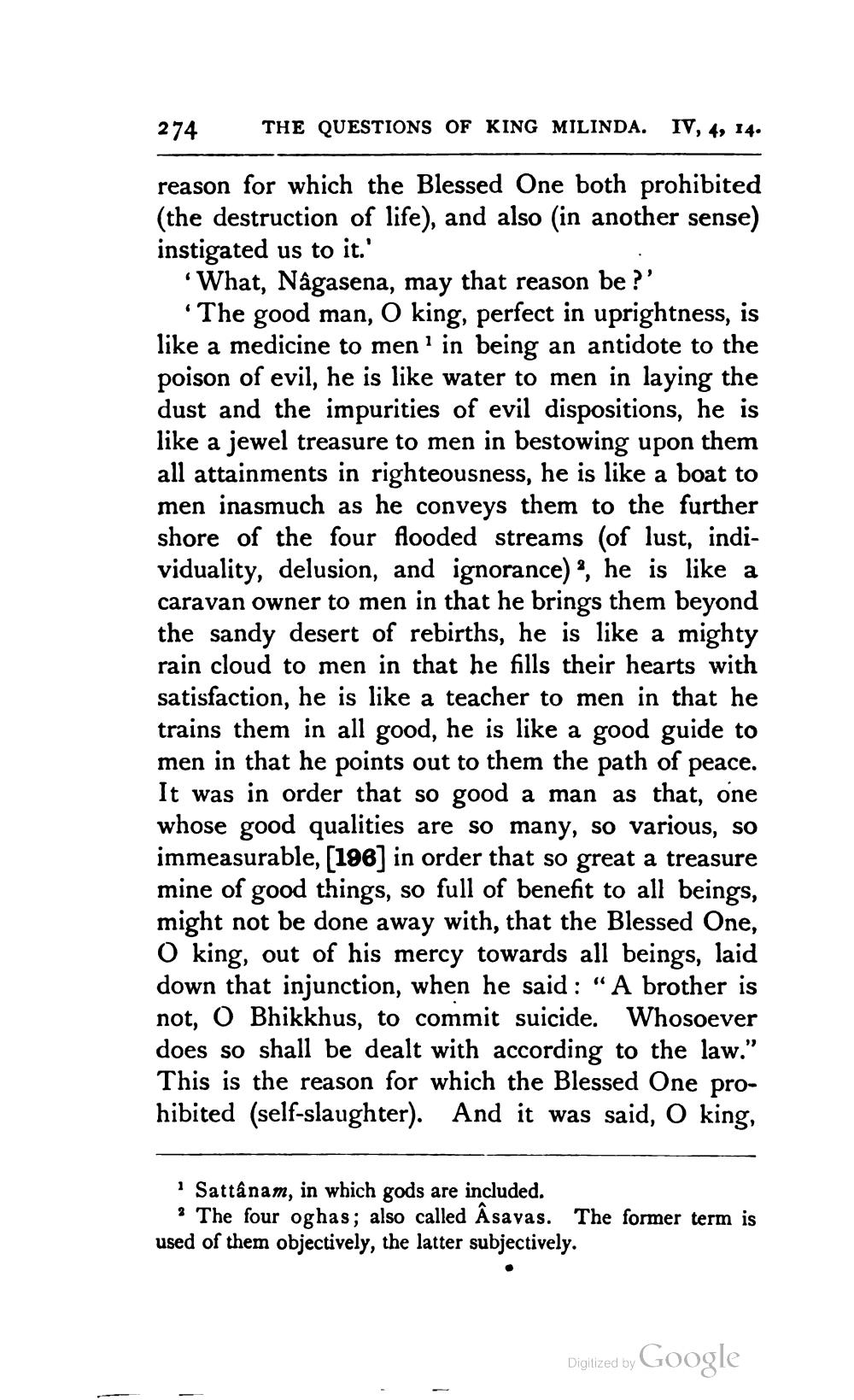________________
274
THE QUESTIONS OF KING MILINDA. IV, 4, 14.
reason for which the Blessed One both prohibited (the destruction of life), and also in another sense) instigated us to it.'
What, Nagasena, may that reason be?'
The good man, O king, perfect in uprightness, is like a medicine to men in being an antidote to the poison of evil, he is like water to men in laying the dust and the impurities of evil dispositions, he is like a jewel treasure to men in bestowing upon them all attainments in righteousness, he is like a boat to men inasmuch as he conveys them to the further shore of the four fooded streams (of lust, individuality, delusion, and ignorance), he is like a caravan owner to men in that he brings them beyond the sandy desert of rebirths, he is like a mighty rain cloud to men in that he fills their hearts with satisfaction, he is like a teacher to men in that he trains them in all good, he is like a good guide to men in that he points out to them the path of peace. It was in order that so good a man as that, one whose good qualities are so many, so various, so immeasurable, [196] in order that so great a treasure mine of good things, so full of benefit to all beings, might not be done away with, that the Blessed One, O king, out of his mercy towards all beings, laid down that injunction, when he said: "A brother is not, O Bhikkhus, to commit suicide. Whosoever does so shall be dealt with according to the law." This is the reason for which the Blessed One prohibited (self-slaughter). And it was said, O king,
· Sattânam, in which gods are included.
The four oghas; also called Âsavas. The former term is used of them objectively, the latter subjectively.
Diglized by Google




